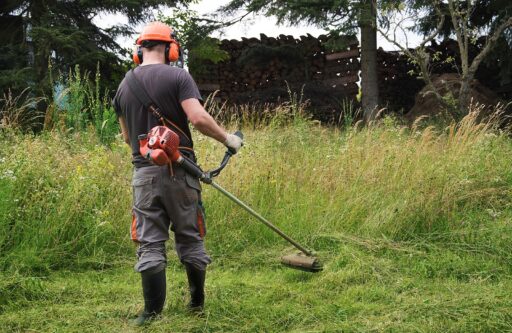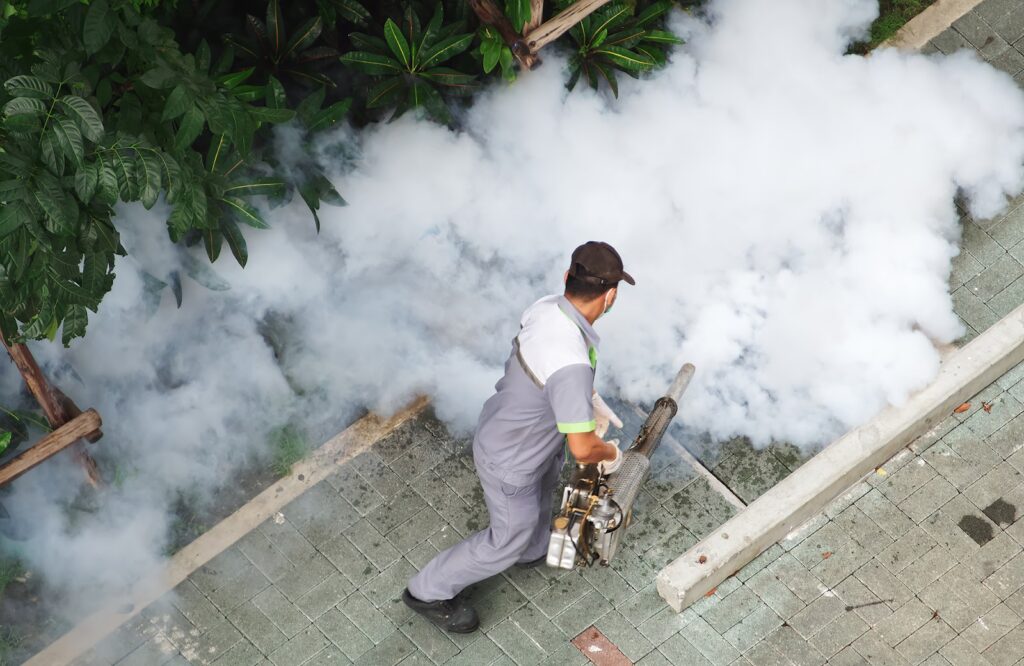Homeowners associations have a wide range of responsibilities when it comes to maintaining community standards. One question that frequently comes up in Florida communities is whether the HOA is responsible for pest control.
What Counts as HOA Pest Control?
In most cases, the HOA is in charge of pest control in shared or common spaces. Think about the clubhouse, playground, sidewalks, lawns, or the pool area. The board typically hires a pest control service to treat those areas on a regular schedule, keeping bugs and rodents at bay.
But inside your own home? That’s where things can get a little fuzzy. If pests are confined to a single unit, the homeowner is usually on the hook. On the other hand, if the problem starts in a shared space or begins affecting multiple homes, it might fall back into HOA territory. That’s why having a written pest control policy is important—it helps spell out where the HOA’s role ends and yours begins.
Common Pests in Florida HOAs

Florida’s warm weather might be great for beach days, but it’s also prime real estate for pests. Some of the common pests HOAs across the state regularly deal with include:
- Fire ants – These aggressive pests often build mounds in yards and can deliver the most painful stings when disturbed.
- Cockroaches – Since they’re drawn to moisture, roaches are quick to infest kitchens and bathrooms, and they can carry germs that affect indoor health.
- Termites – Silent but destructive, termites feed on wood and can cause serious damage to a home’s structure over time.
- Rodents – Mice and rats are sneaky invaders that can chew through wiring, get into food, and spread diseases.
- Mosquitoes – These pests breed in standing water and are known for spreading illnesses like West Nile and dengue.
These pests can cause serious property damage, lead to health issues, and lower the overall appeal of the community. Prompt, community-wide action is often necessary, especially when infestations are detected in shared spaces or start spreading between homes.
Pest Control in HOA: What the Governing Documents Say
Every association has a set of governing documents—the CC&Rs, bylaws, and so on—that lay out how the community is managed. If you’re wondering who should call the exterminator, that’s where you should start.
Most Florida HOAs clearly state they’re responsible for pest control in shared spaces. Some go a step further and include regular pest inspections in the monthly dues, spreading the cost across all residents.
Is the HOA Responsible for Rat Control?
Rat and mouse infestations are a growing concern in many Florida communities. So, is the HOA responsible for rat control? The answer once again depends on the location of the infestation and the terms laid out in the governing documents.
If rats show up in common areas, such as near the dumpsters or shared utility rooms, the HOA is typically responsible for cleanup and prevention. But if they’re inside your home, it depends on where they came from. If it’s traced back to a common area, the HOA may step in. If not, it’s usually up to you.
That’s why many associations hire licensed pest professionals to help determine where an infestation started before assigning responsibility. Either way, prevention is key, and closing off entry points, cleaning up trash areas, and scheduling treatments can all help.
Why a Clear HOA Pest Control Policy Matters
Unclear policies lead to conflict. If your HOA doesn’t have a documented pest control policy, it’s a good idea to develop one. A comprehensive policy should clarify:
- The types of pests the HOA is responsible for.
- The areas covered under the HOA’s responsibility.
- The homeowner’s role in maintaining a pest-free property.
- Reporting procedures for pest sightings.
- Frequency and scope of routine pest inspections and treatments.
A good HOA pest control policy protects the association from liability, ensures resident cooperation, and helps maintain the community’s integrity. It also sets expectations so that residents aren’t surprised when they’re expected to handle specific pest issues themselves.
Handling HOA Pest Control
Pest control in homeowners association settings often involves a professional service contracted by the HOA. These services typically perform regular inspections of common areas, treat visible infestations, and may even educate residents on prevention strategies.
Some associations also offer optional pest control services for residents at a discounted group rate. This can be a win-win situation, encouraging homeowners to take preventive measures while maintaining a higher standard across the community.
Homeowner Responsibilities

While HOAs play a large role in maintaining shared spaces, homeowners also have their part to play. Keeping garbage secured, eliminating standing water, maintaining landscaping, and sealing potential entry points are all ways homeowners can help reduce the risk of infestations.
When pest problems arise within a unit, it’s important for homeowners to act quickly. Delayed responses can make the problem worse and increase the chance that the infestation spreads. In these cases, failure to address the issue may result in violations if the problem affects neighboring homes or shared walls.
Community Problems Need Community Solutions
Pests don’t care about property lines. If one home has termites, it’s only a matter of time before the neighbors do, too. That’s why the most effective approach is a united one.
HOAs can schedule treatments for entire buildings or blocks, host info sessions with pest experts, and send out prevention reminders. When residents and boards work together, pest problems get solved faster.
A Quick Note on Legal Obligations
Under Florida law, HOAs have a legal duty to maintain shared areas and protect property values and curb appeal. That includes handling pest problems when they threaten the community as a whole. But that duty doesn’t usually extend into your home—unless your infestation is impacting shared walls or spreading beyond your space.
When complaints escalate to court, governing documents are often the primary focus of the courts. A strong, detailed pest control policy can help reduce disputes and protect both the board and the homeowners.
Pests are a Shared Concern
No matter how well-maintained a property is, pests can still find their way in. And once they do, it often takes a coordinated effort to remove them. That’s why homeowners and associations need to work together.
Education, routine maintenance, and a clear plan of action can make all the difference. Whether it’s fire ants in the lawn or termites in the walls, swift action protects both property and peace of mind.
Controlling Critters
Understanding the division of responsibilities and maintaining open communication helps prevent infestations from becoming community-wide problems. With a solid HOA pest control policy and cooperation from residents, your community can stay cleaner, safer, and pest-free year-round.
Freedom Community Management provides HOA management services in Florida. Call us at 904-490-8191 or contact us online to learn more!


